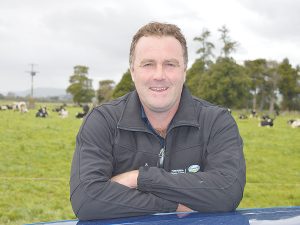
New Zealand agriculture does not need to be turned on its head, Foundation for Arable Research (FAR) chief executive, Dr Alison Stewart told the recent Primary Industries Summit in Auckland.
But anyone watching television and scrolling through social media would get the impression it was “totally stuffed”.
“Why doesn’t NZ like what we’re doing in agriculture at the moment?,” she asked. It went back to the 1980s when Government deregulation and reforms “threw everyone up in the air” meaning a survive-or-die choice was faced. So farmers intensified their focus and efficiency of scale and transitioned away from mixed farming. The results were silos of intensive monocultures, where “dairying bubbled up to the surface”.
That was supported by the Government, banks and research institutions and the general public was happy because it got NZ through two global financial crises and would probably mean a good recovery from Covid. Environmentalists, who had an important role to play, had pointed out some of the inherent problems with such a system.
“I don’t have a problem with them pulling us up, but the problem is the finger is being specifically pointed at farmers,” she said.
They should not be blamed for the unintended consequences of what had happened over the last 40-50 years in the same way as no one should be blamed for catching Covid.
Reducing herd numbers and intensification were not the answer nor was cutting out synthetic inputs.
“But we may not need as many, in as many places for so many purposes. We’ve got to stop thinking black and white. We try to solve every problem with one set of policies and procedures. We can’t get our heads around the subtleties and complexities and expect everyone to jump through the same hoops.”
She likened the situation to a doctor seeing a dairy farmer who was injured after being knocked down by a cow and concussed, a sheep and beef farmer who twisted their ankle while fencing and a kiwifruit grower who developed repetitive strain injury (RSI) counting all their money. The cure the doctor suggested was no dairy cows, the fencer should wear lead boots and all farming should be made unprofitable. An arable farmer only there as a support person was told, “Tough shit, get your lead boots on.”
Toxic binary arguments
Stewart said some of what environmentalists were saying was taken on board by politicians, TV personalities on social media “and then the media blow it up”.
The result was toxic, binary arguments such as plants versus animals or declarations that the country needed to go organic or totally embrace regenerative agriculture.
Stewart said she was nervous about saying NZ was in a situation where it was hearing that it might be a good idea to frame agriculture’s future around matauranga Maori (Maori knowledge) as a unique point of difference.
She described this as a form of modern decolonialism as Maori had struggled to keep their culture going and now it didn’t seem right to “market” it by appropriation by non-Maori. If adopted NZ ran the risk of negating the value of all other contributions from different cultures which made the country into “an amorphous lump of western thinking”.
“NZ’s point of difference is that we’re not shackled by thousands of years of thinking. New ideas bubble up from within and we don’t want to lose that.”
It was already the most sustainable and diverse in the world with 50 different types of agricultural sectors.
Don’t pick winners
The Government shouldn’t try to pick winners as it lacked the capability to do so. Instead it should enable successful industries to become more successful, taking on the role of sorting out trade agreements, water regulations so farmers knew what they could and couldn’t do and advanced breeding technologies.
The debate on genetic modification was 20 years ago and not revisiting it was “one of the most irresponsible things successive government have done”.
“We might have a referendum and decide no, but not to have the conversation is irresponsible.”
It was important for farmers not to focus on the negative but to sort out some red flags.
“We will do it. We’ve jumped over all the barriers in the past.”
If farmers wanted to have a go at anyone it should be those in agriculture not operating to good practice rather than those “playing classical music to their sheep”.























